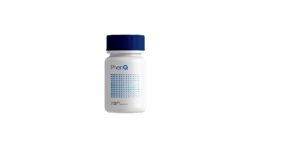Testosterone, an anabolic steroid is a primary sex hormone in males. Testosterone plays a vital role in developing male reproductive tissues like the testes, and prostate gland in males. Secondary sexual characteristics such as increased bone mass, lean muscle, growth of body hair, fat distribution, and accumulation also vastly depend on testosterone levels in males.
It is also responsible for certain psychological characteristics like intention to impress partners, increased aggression, sex drive, and other male-like courtesy. In a healthy male, the normal testosterone level is 300 to 1000 nanograms per liter of blood.
Testosterone is found in both males and females. In males the levels of testosterone are high and in females, it is found in much lower levels. But for both sexes, it regulates the overall general health such as social and sexual behavior, cognition, overall mood, metabolism and energy release, the well-being of the cardiovascular system and lowering the chances of osteoporosis.
It is responsible for sex differentiation, male sex characteristics, spermatogenesis, and fertility among men.
Outcomes of Excess Testosterone Level
Lack of testosterone is definitely a problem, but excess testosterone results in much more troubled situations in males. Excess testosterone levels increase criminality, and impulsivity and result in hypersexuality among men. It also higher the chance of prostate cancer in men and thus increases mortality, increase the risk of heart failure,
Functions of Testosterone
- Testosterone initiates primary sexual development such as testicular descent, enlargement of the penis and testes, spermatogenesis, and increasing libido.
- Secondary male characteristics also depend on testosterone. The following are the secondary sex characteristics in males:
- Skeletal muscle growth
- Bone density increased
- Male hair patterns
- Vocal changes
- Voice deepening
- Production of red blood cells
- Distribution and storage of fat in the body
- The mental health of male
The production of testosterone is higher during puberty and drops significantly after 30 years of age. Sexual stimulation and sex activities raise testosterone levels.
Other uses of Testosterone
In human beings as well as in other vertebrates, testosterone is produced in the testicles of the males. A small amount of it is also produced in the ovaries of the female body. Besides the naturally produced testosterone, it can be used as medicine for certain diseases and physical problems. Production of testosterone reduces with age, so it is used from outside to overcome the deficiency in older males.
It is used to treat breast cancer in females.
It is used to treat hypogonadism (reduced functional activity of the gonads)
Sometimes it is used illegally to enhance the physique of bodybuilders and the performance of athletes. The World Anti-Doping Agency listed it as prohibited.
Low Levels Of Testosterone
Clinically, less than 300 nanograms per deciliter is considered a low testosterone level. Lower testosterone levels are known as Testosterone deficiency Syndrome or Low Testosterone (Low-T). The causes of Low-T are
- Accidental Damage of testicles
- Removal of testicles because of cancer
- Chemotherapy or radiation
- Infection
- Aging
- Obesity
- High blood pressure, high blood sugar, high cholesterol levels, and belly fat known as metabolic syndrome
- In autoimmune diseases
- HIV positive
- AIDS
Symptoms of Low-T
- Erectile dysfunction
- Reduced lean muscle mass
- Fat accumulation, especially in the abdominal region
- Mental fatigue
- Depression
- Low sex drive
Diet for Low Levels Of Testosterone
If the testosterone level is considerably low then treatment is required. But sometimes a change in lifestyle, a diet that contains testosterone-boosting food can help to increase testosterone levels. A healthy lifestyle means regular exercise, a balanced diet, adequate water intake, restraint from alcohol or any other types of drugs, and sufficient sleep. Certain food items that are rich in potassium, magnesium, and zinc are best to boost testosterone. That is why adding those foods to your daily diet can increase your testosterone level.
Foods that can increase the testosterone level are discussed below:
- Ginger
Ginger is used for ages for digestion as well as for colds and coughs. But it has a significant role in boosting testosterone levels thus enhancing male fertility. Study shows that regularly taking ginger for three months increases the testosterone level by 17.7 percent in the group of 75 participants having fertility issues. Not only that it improves the sperm quality of the participants as well.
Ginger root has several potent antioxidant compounds. These antioxidants protect the reproductive organs from oxidative stress. It also enhances the activities of certain antioxidants found in the male reproductive organs, like testis, prostate, and epididymis.
- Oysters
Oysters also boost testosterone production as they contain abundant zinc and protein. Eight ounces of oyster is the source of 18 grams of protein. Zinc which is essential, especially during puberty has importance in reproductive function and sperm health.
Though it is advisable to reduce copper intake while going through zinc supplements.
Severe zinc deficiency results in hypogonadism, in which the body fails to produce enough testosterone. In such cases, they may experience delayed sexual maturation and impotence. Zinc can be also found in
- Red meat
- Other shellfish, i.e, lobster
- Poultry items
- Beans
- Nuts
- lentils
- Pomegranate
Pomegranate is a citrus fruit, rich in antioxidants as much as three times more than green tea. From a study from 2012, it is evident that it increases testosterone levels in both males and females by 24 percent within just 14 days. But it is a well-known fact from age-old times that pomegranate enhances sexual functioning and fertility.
- Leafy green vegetables
Leafy green vegetables are sources of a number of nutrients and fibers out of which magnesium is a mineral that boosts testosterone levels. A study conducted in 2011 showed that regular intake of magnesium for 4 weeks increases testosterone levels considerably. Though the rate of the enhancement of testosterone is greater in active people like athletes than in people with sedentary lifestyles. Whole grains also help in boosting testosterone.
- Fatty fish and fish oil
Recent studies contradict that excessive fatty fish is harmful to health. Rather it is now proved that fatty fish or fish oil are rich in omega-3 fatty acids. The benefits of omega-3 fatty acids are endless. Omega-3 fatty acid improves the quality of semen and serum testosterone levels. Atlantic mackerel, trout, herring, sardines, and salmon are some of such fish.
- Red meat
Red meat causes certain health problems like a higher risk of heart disease, diabetes, blood cholesterol, and cancer. But it is a very good source of zinc and protein as well. So in the cases of testosterone deficiency red meat can be included in the diet but in a moderate amount.
- Pumpkin Seeds
Pumpkin seeds are widely used in making sweet and Indian curry. It is loaded with zinc that increases sperm count by boosting levels and consequently enhancing muscle mass.
- Legumes
Beans, peas, and peanuts are members of the legume family. All the members of this group contain the two essential minerals zinc and magnesium. Regular consumption of these items increases the testicle’s function and testosterone level.
- Some Herbs
Herbs act basically like a medicine for certain ailments if administered properly. Though many herbs are considered to be effective in boosting testosterone, four of them are backed by preliminary research. They are fenugreek seed extract, ashwagandha root, and leaf extract, Asian red ginseng, and forskolin root extract.
Foods to avoid by those suffering from low testosterone level
- Mint
Mint is popular for its effective digestion-enhancing properties, but it is not good for testosterone levels.
- Trans fat
Trans fat has been banned since 2015 as it is unhealthy and increases the risk of heart disease, type 2 diabetes, and inflammation. The source of trans fat is processed food which can reduce the testosterone level. A higher amount of trans fat intake can decrease testosterone by 15%.
- Alcohol
Alcohol is detrimental to health in many ways, and decreasing testosterone levels is one of them. 2 or 3 standard drinks per day reduce testosterone by 6.8% over 3 weeks. The research-backed study shows that the consumption of alcohol reduces semen and affects the reproductive hormones in men.
Conclusion
What we eat is what we are. This common saying is all about being healthy in all respects. Our diet is the only thing that keeps us healthy. Exercise, adequate sleep, and proper water intake are some other factors that make the diet more effective in curing or maintaining a healthy body.
Every nutrient, the vitamin, can be better absorbed by an active body. A sedentary lifestyle means self-destruction. Testosterone level is not an exception. Active, routine life and a balanced diet can boost the testosterone level and overall physical, sexual, and mental health of males. For acute testosterone deficiency, external testosterone can be administered by registered professional medical practitioners.
Otherwise replacing the testosterone-lowering food with that mentioned in the article may prove fruitful. Even males over 30 years of age can also opt for the foods considered to boost testosterone. After 30, the testosterone level decreases by 1% per year. Stress is another restriction in normal testosterone levels. Cortisol hormone is produced by the body during stress, which binds the free testosterone and reduces the level in the body. Living a stress-free life is the key to maintaining a healthy level of testosterone and a healthy life.









